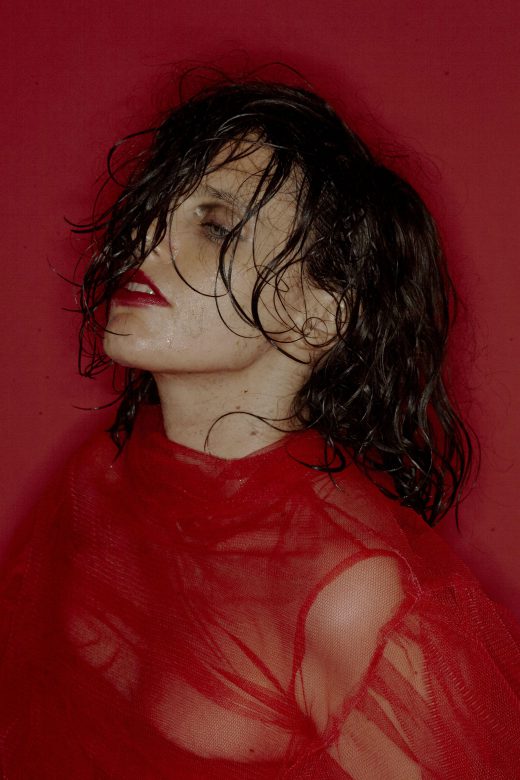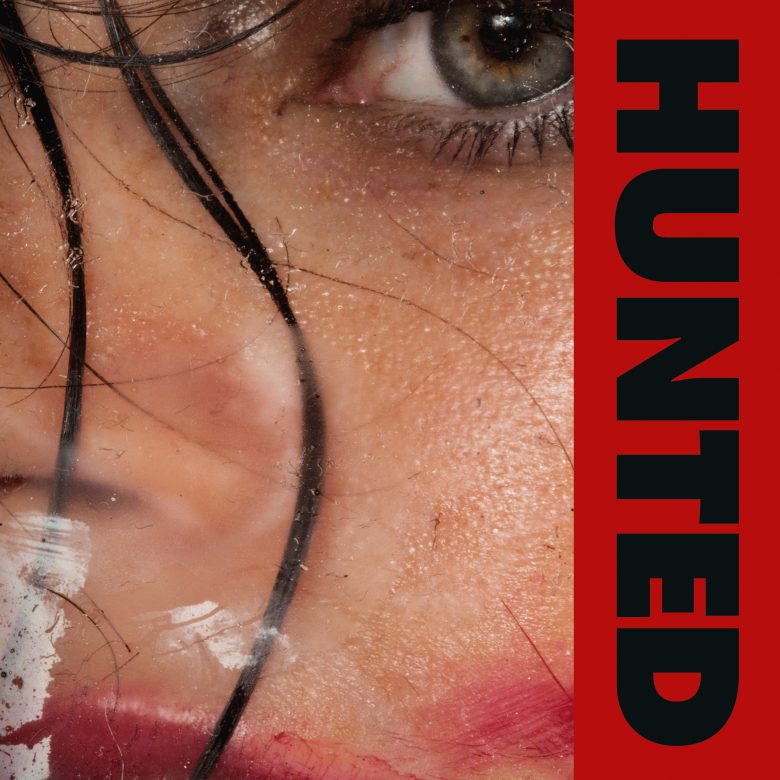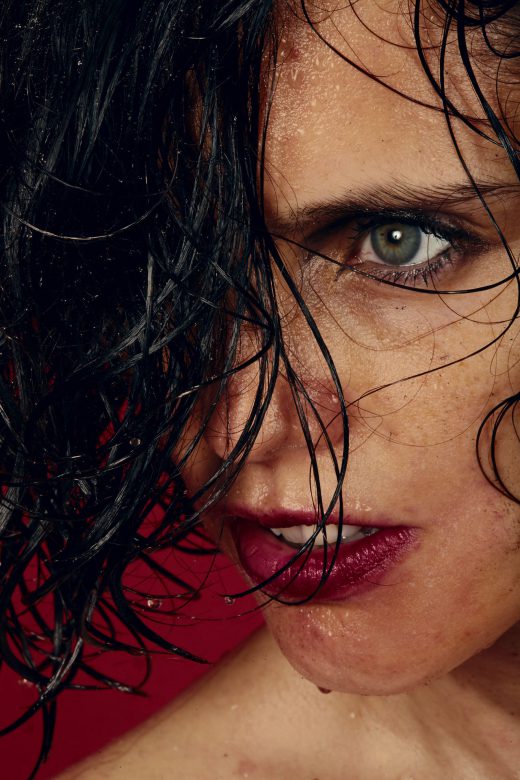Anna Calvi didn’t land on the stage in the typical singer-songwriter fashion so much as stomp her way onto it. The former London-based guitar instructor immediately gained notoriety with her self-titled 2011 debut, which was nominated for the prestigious Mercury Prize in addition to a slew of other award nominations. In an unprecedented achievement, Calvi repeated those nominations for both her subsequent albums.
Her third full-length record to garner this attention was the critically lauded 2018 album Hunter, which saw Calvi unfurl her talents towards a more explicit conversation about her lived experience as a gay woman. She used the visceral, primal themes of the hunter to explore issues of the feminist experience beyond gender.
In addition to a number of collaborative projects between then and now, she was most notably brought on as composer for season five of the hit UK television series Peaky Blinders. Talks for future seasons are in the works.
Among all these projects, this past week we saw the release of Hunted, a musical response to Hunter formed out of the songs’ earliest incarnations. On it, Calvi explores the initial impulses of her songs in their sparsest forms, and the paths they might have taken by way of collaborations with the likes of Courtney Barnett, Charlotte Gainsbourg and Julia Holter.
OMG.BLOG spoke with Anna to find out what she was looking to find on these new versions on Hunted, as well as how the non-stop pace of the last few years has informed her work as a multi-faceted artist at large in complex personal times.
Read the full Q&A after the jump!
�
You’ve spoken about your work on Peaky Blinders, and you seem legitimately excited about the project, but was it complicated for you to put your own record writing process on hold for that? What’s it like balancing those endeavors?
Well when I was doing Peaky Blinders, my record was already out. So, I was just focusing on the writing for Peaky, but I really enjoyed writing music that wasn’t just for me and about me. It was nice to not be the most important thing about the whole process.
I guess for me I’ve always found that writing is a very visual medium. I like to write songs and imagine them as mini-films, so writing music to an actual image felt very natural. Straight away it was a very rewarding experience.
What kind of liberties does that allow you to take when you remove yourself from the center of the subject matter?
Well, in general terms, you don’t have to keep asking yourself “what does this mean?” or “what am I trying to say as an artist?”. But then, I guess, more specifically anything goes, as long as it fits the scene. It doesn’t matter if it’s wildly different from what I would do with my own music.
It’s, of course, always within my taste and musical instincts, but the aesthetic palette can be even wider. I was working closely with a director so it was very much about his vision and what he saw the music needing to say. It doesn’t matter how good the music is on its own, because if it doesn’t fit the scene, it doesn’t go in Peaky Blinders!
So, for the ego, it’s kind of good for you as an artist, because it really isn’t about yourself at all, and I really like that.
Did you feel like you had to adhere to what they had done musically before with the previous seasons? Did you use that as a guideline or were you just allowed to go wherever you wanted to?
Well, I watched the seasons as they came out, but I specifically didn’t go back and re-watch them or listen to the music because I didn’t want to be influenced by what had been done before. That was really important to me.
So, in that way, I wasn’t influenced by anything. I always liked the idea that Peaky Blinders was a Western, but set in Birmingham! For me, that was my starting point.
Hunted features reworked versions of your last record in collaboration with other artists. Your career has already featured some adventurous moves in terms of collaboration. In addition to Peaky, you’ve worked with the great Robert Wilson on the stage production, Sandman. Why are you drawn to these collaborative efforts and how do they fuel your solo work?
I think when you’re working with other people who have very strong visions – even if they might clash with your own – that that’s really interesting. With Robert Wilson, he’s just a very singular person in terms of his vision and, although we did disagree sometimes, I think that’s what makes the work good.
In the work you can feel there’s a push and pull between us, and it’s not like one of us is just agreeing with the other one in order to make things go smoothly. I think because of that, things turn out great, and you end up very proud of the work.
Coming off an experience like that, do you take other people’s like creative energy into your personal trajectory? Does it bleed into the next project for you?
I just find it really interesting to see how other people work and how they do things. I’m constantly watching and learning, so the next time when I’m working, I will often try out methods that I’ve seen other people have used, the ways other people have worked.
Can you describe the impetus to specifically revisit the songs from Hunter in a collaborative way?
I had these early recordings of the record from when I’d first written the songs, and I think there’s always something quite interesting about the first time you put down the song. It can be the truest form of that song in a way.
I really liked the idea of sharing these recordings with some of my favorite artists. It just felt like a kind of interesting thing to do to see how their artistry might influence this first incarnation of these songs.
You’ve been very outspoken about your Queer experience increasingly informing your work. In response to issues like the “inclusion rider” coming into popular culture, was that something you felt you had to consider when navigating these collaborative partners?
I really just focused on artists that have genuinely inspired me recently. They all are just so important to me. Of course say, Courtney Barnett is a queer artist, but that wasn’t the focus.
In general, in the future, of course it’s something I think is very important and that I would definitely have in mind when thinking about who to collaborate with. For instance, when I tour, it is still very much a white middle-aged male environment.
Yeah. The music industry.
Yeah. You know: the sound people, the monitor and sound engineers, the guitar techs. It’s hard to find people that don’t fit the middle-aged white male mold, but I’m always looking out for specifically women to fill these roles because it feels more comfortable and better for myself, apart from anything else.
This record and the last record are very much linked. With Hunter, you moved the topic of your Queerness from the periphery to the center of the conversation. Can you describe why you made that move with that record specifically, and how it has affected your working experience since then?
I guess part of it was subconscious. I was newly in love and I wanted to write about the things I was feeling and thinking about. I wanted to write a very intimate record, and the subject matter of my songs are always the things I am passionate about in my life. It was only a matter of time before they found their way into my music in a more obvious way, even though they have always been there.
I was also really inspired to see other artists talk about these things more and more. When I first started releasing records, it was a much rarer thing. I was really inspired by Perfume Genius – he’s a queer artist, but that’s only a part of what he is. He’s such an incredible songwriter, but he also speaks in a way that I feel that if I’d have had him when I was a teenager to listen to, it would have made a difference to my life.
So I kind of had this idea of record for the teenage me, a record that I never had, but I wished that I had.
Does increasing that personal transparency in your songs as a writer shift the intensity of your relationship to the songs specifically?
I guess sometimes when you are singing, you’re not really thinking about the words; you’re thinking about the performance and the sound of the word in your mouth. Sometimes when I think about the words I am actually singing, I feel quite exposed and a bit shocked.
But I think that when you are writing lyrics, you need to feel like it’s a bit dangerous for you. I don’t think that you can write really good music if you’re playing it safe.
Now that these elements of your personal lived experience have made their way into the press releases and journalistic aspects of your career, has it been weird having to talk about those elements of your life outside of your songs?
It is weird and sometimes it’s uncomfortable, if it’s with someone who just doesn’t get it. At the same time, even though I am a very introverted and private person, I do it because my music is asking me to and it makes me feel strong enough to do it. In the same way, I get up on stage and I can perform because my music is asking me to do it. That’s what makes it okay.
But it’s definitely not the kind of thing that I would generally do if it weren’t for the music. I’m not the kind of person that says everything to someone that I don’t really trust. That’s definitely not the kind of person I am. So I’m taking a risk, but I think it’s for the right reasons.
Beyond artists like Perfume Genius, Queer visibility has officially breached the mainstream with artists like Lil Nas X, Bad Bunny and many others dominating the charts. How do you feel this aspect of Queer representation fits into this capitalistic industry?
I feel it’s important to recognize that Queer music isn’t a trend. For Queer people to have a place to express themselves is in some cases a matter of life and death. It’s about providing a space for people being able to talk about trauma or even just to celebrate being happy and not think that’s something to be ashamed about.
The thing that I feel most sensitive about now is – and this is a very personal experience – is that as a gay woman, I don’t want to feel like I have to play the victim role. I want to be able to talk about Queerness in a celebratory way. Not that I don’t want to talk about what can be difficult, but I don’t want straight people to be able to be like, “Oh poor, poor little gays.” That makes me really uncomfortable.
For example, when I’m talking to straight video directors and they show me treatments with like, crying gays, and the story arc is just that we all, then, come together and get happy because they were together, I guess that’s what I like about someone like Perfume Genius. His queerness is presented in his art because it is part of him, but it’s not there to be consumed in the sense of straight people going to the zoo and watching gay people cry.
You’ve also been very outspoken in terms of using this feminist revision of the idea of the word “Hunter” as central to these last two records Can you elaborate on that?
When I think of the word “Hunter,” I think more generally about a person who is hungry; hungry for experiences or hungry for pleasure. I feel that women haven’t been allowed to be hungry because to be hungry is to be active, and women are meant to be passive. So it’s not specific to the warrior in terms of say, Wonder Woman as a warrior.
I get really annoyed when people talk about women as “strong women,” because that’s the same as limiting women to being caring or kind. Obviously men are misdirected in how they’re allowed to be as being vulnerable individuals, but that’s also kind of misogynist because a man can’t be vulnerable because that’s what a woman is meant to be, and there’s nothing worse for a man to be compared to a woman.
In our patriarchal society, if you’re a woman, you’ve lost all your power. Even more explicitly I liked exploring the idea that a cis-woman’s vagina is a mouth. It’s not a hole to have something put into it, rather It’s a mouth that wants something. I really struggle with ideas of passiveness around the woman’s body.
Is there a point where the Queer identity limits the themes of strength or vulnerability within the songs themselves? Where is the line when your lived experience as an artist limits the listener’s ability to find a personal narrative in your work?
I want the album to be relatable beyond the element of the lyrics. It’s important to me for the music itself to be galvanizing, and then that way it applies to anyone. The way that I listen to music is I listen to the music first and then I discover what the song is actually about, so it’s important to me that the music is telling the story or the sentiment of the song just as much as the lyrics.
Do you think of Hunter and Hunted as concept records? And if so, how do those concepts transform between the two? There’s a notable vastness to the newer versions in comparison to the originals. Does that relate to the evolution of your concept of the songs?
I wanted to explore the more fragile, introspective, and introverted elements on Hunted in contrast to the brash, bold versions on Hunter. I always felt that there were two sides, or more dimensions to being to a person. It’s like what I was saying about the idea of being a “strong woman” and how I find that limiting. With the two records I wanted to explore the fact that we can be, I guess the hunter and the hunted in our lives.
— Q&A by Kevin Hegge (@theekevinhegge)




Be the first to comment on "OMG, a Q&A with Anna Calvi"